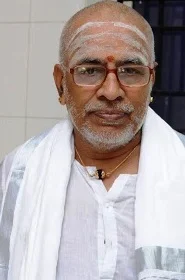CONDOLENCE MESSAGES :'May the soul rest in peace' ஆன்மா சாந்தி அடைய, etc.Is it right?
CONDOLENCE MESSAGES
'May the soul rest in peace, ஆன்மா சாந்தி அடைய, etc. Is it right?
Now-a-days I observe at several places - when a death occurs, the nearest, close and known to the family, express
their feelings and send condolence messages.. It is natural, no doubt. It also gives some sort of solace to the family members.
But is it right?
While doing so some of them add phrases like 'MAY THE SOUL REST IN PEACE' ஆன்மா சாந்தி அடைய, etc. While
I appreciate the heart-felt feelings of these people I am tempted to point out and share my reactions.
The phrase 'May the soul Rest in Peace" , ஆன்மா சாந்தி அடைய,etc can be avoided - this is a western concept of expression, and in our tradition we look at the soul in a different way.
Then how to express? This question may arise, it is natural. Let us look into it for a while.
The condolence messages, though common in spirit, it differs from sampradya to sampradya like Smarthas and Vasihnavas -
attaining Kailasam or Vaikuntam. One can choose either one in addition to his own thoughts - adding some good qualities of one who died. The one way, in addition to your own feelings, of expressing our condolence is "Jeevan Nargathi adayattum." ஜீவன் நற்கதி அடையட்டும்.
Well. Let me explain further.
Death is inevitable, we all agree. We all understand one thing: from the moment a person is born he is moving towards death. The mind does not easily accept it when a person close to us is ‘no more’ – and believes that he has in fact attained paraloka, that jiva (the soul) cannot be destroyed though the sarira (the body) can be.
This is correct. A sinner suffers the effects of his bad deeds by going to hell, and a saintly person realises the results of his good deeds and goes to heaven.
In the after-life a person achieves 'saalokhya' when he gets into devaloka; he achieves 'sarshtita' when he can get the wealth of devas; and he achieves 'saayujya' when he becomes a deva himself.
CONDOLENCE MESSAGES
'May the soul rest in peace, ஆன்மா சாந்தி அடைய, etc. Is it right?
Now-a-days I observe at several places - when a death occurs, the nearest, close and known to the family, express
their feelings and send condolence messages.. It is natural, no doubt. It also gives some sort of solace to the family members.
But is it right?
While doing so some of them add phrases like 'MAY THE SOUL REST IN PEACE' ஆன்மா சாந்தி அடைய, etc. While
I appreciate the heart-felt feelings of these people I am tempted to point out and share my reactions.
The phrase 'May the soul Rest in Peace" , ஆன்மா சாந்தி அடைய,etc can be avoided - this is a western concept of expression, and in our tradition we look at the soul in a different way.
Then how to express? This question may arise, it is natural. Let us look into it for a while.
The condolence messages, though common in spirit, it differs from sampradya to sampradya like Smarthas and Vasihnavas -
attaining Kailasam or Vaikuntam. One can choose either one in addition to his own thoughts - adding some good qualities of one who died. The one way, in addition to your own feelings, of expressing our condolence is "Jeevan Nargathi adayattum." ஜீவன் நற்கதி அடையட்டும்.
Well. Let me explain further.
Death is inevitable, we all agree. We all understand one thing: from the moment a person is born he is moving towards death. The mind does not easily accept it when a person close to us is ‘no more’ – and believes that he has in fact attained paraloka, that jiva (the soul) cannot be destroyed though the sarira (the body) can be.
This is correct. A sinner suffers the effects of his bad deeds by going to hell, and a saintly person realises the results of his good deeds and goes to heaven.
In the after-life a person achieves 'saalokhya' when he gets into devaloka; he achieves 'sarshtita' when he can get the wealth of devas; and he achieves 'saayujya' when he becomes a deva himself.

